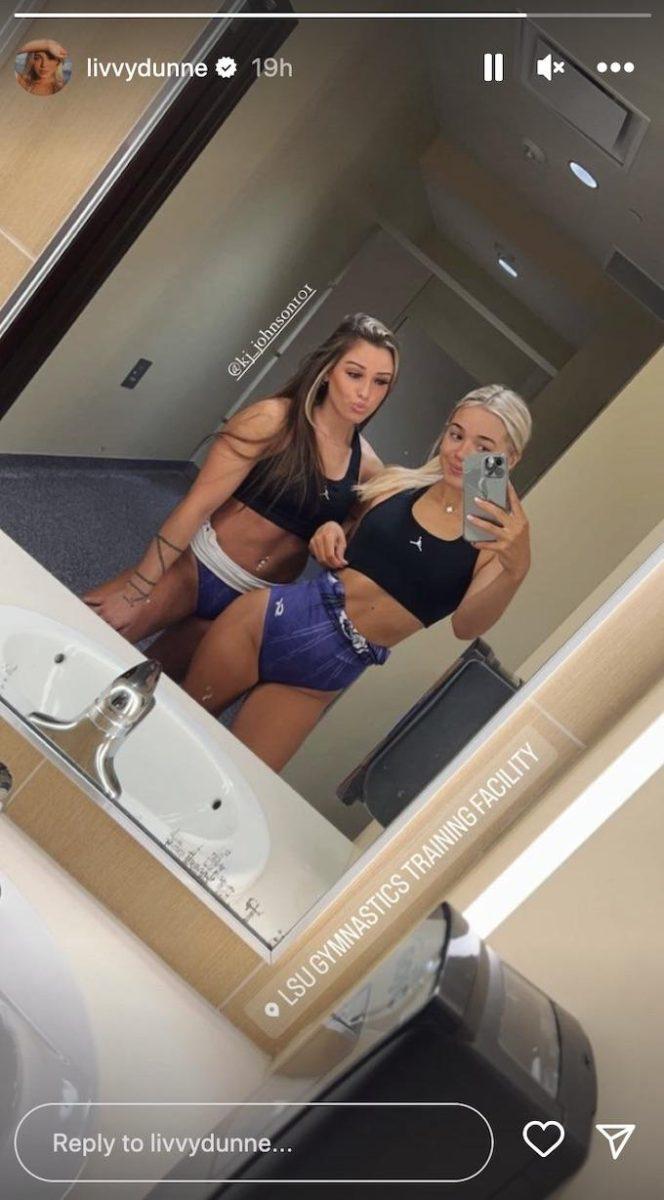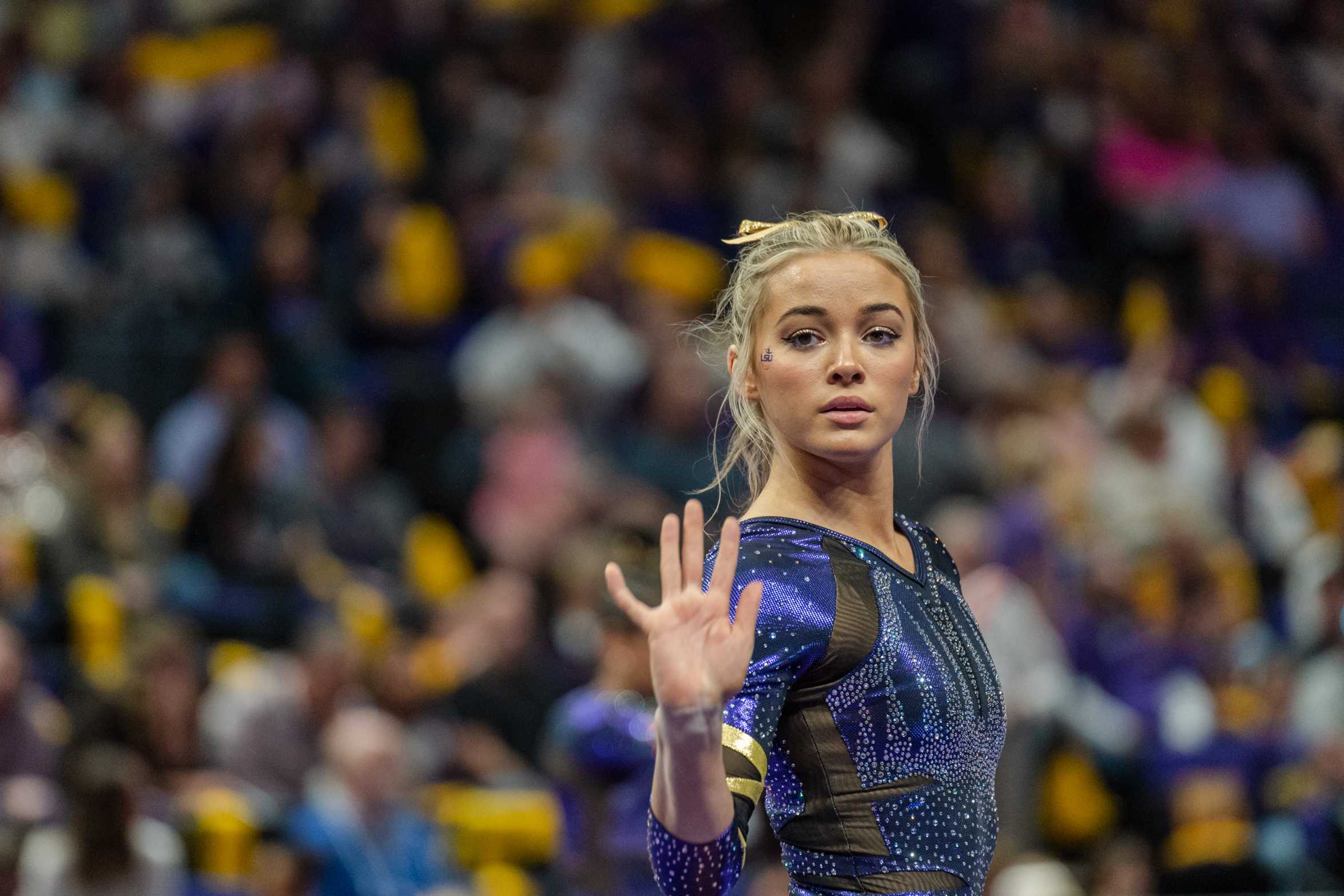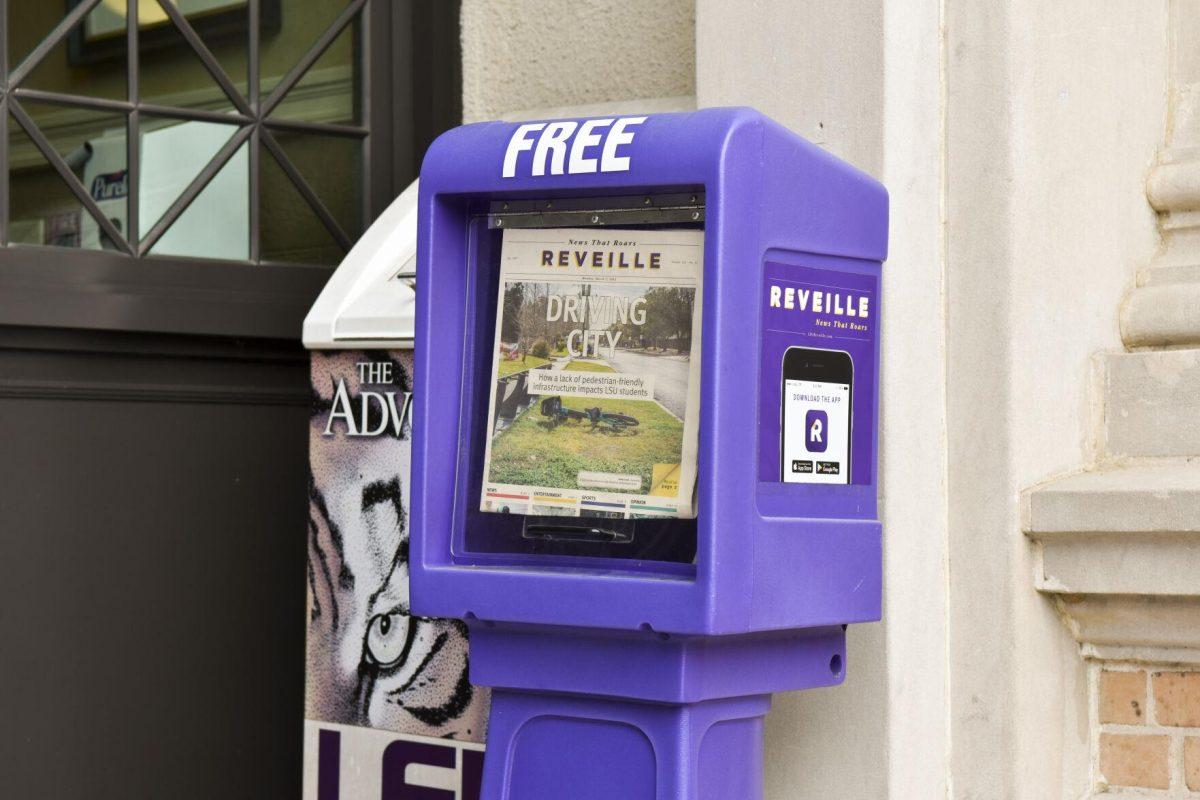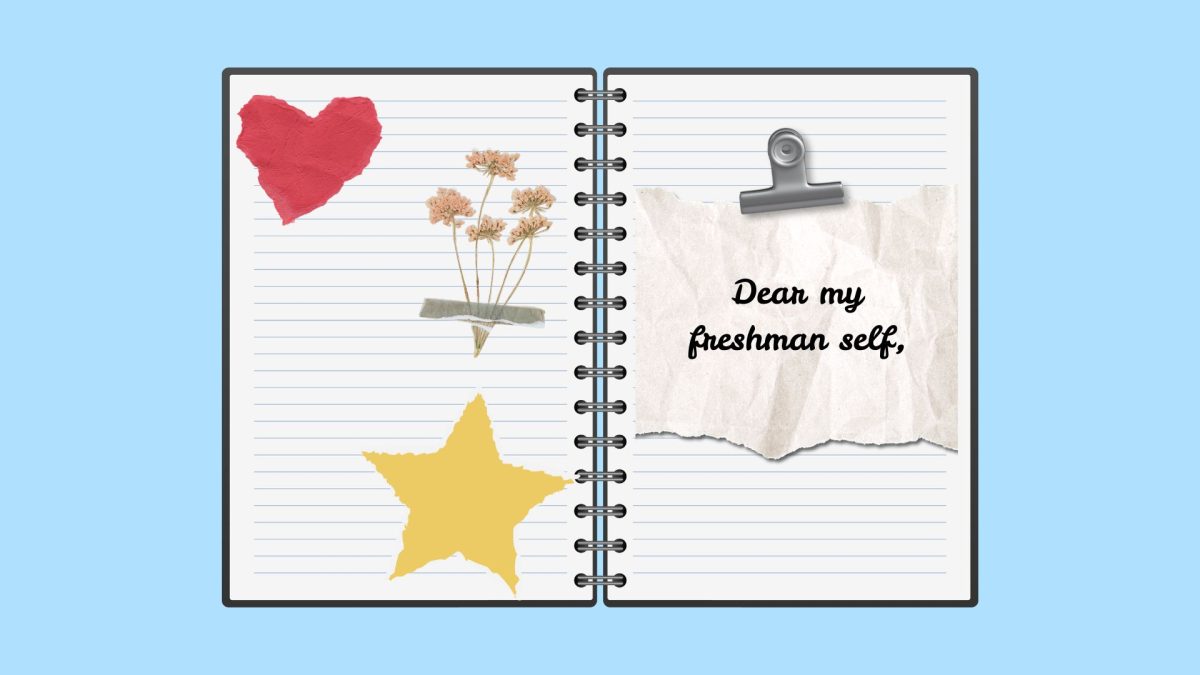Heads turn when LSU tigers hear the name Olivia Dunne. Dunne is known for her grace as a gymnast and for being an energetic and enthusiastic social media personality.
Though Dunne is famous for her talents as a gymnast, she became even more admired when she created a TikTok account featuring videos of her gymnastics routines, her dancing with her friends and more. Dunne now has over 6 million followers on TikTok and over 2 million followers on Instagram.
Nowadays, Dunne and many other college athletes have Name, Image and Likeness deals that allow them to make money through marketing agreements. Dunne has partnerships with American Eagle, Vouri, Bartleby and Plantfuel, according to the New York Post.
Recently, Dunne posted a photograph of her and fellow gymnast KJ Johnson on her Instagram story wearing sports bras with their leotards only covering their bottom halves.
In response to that post and other “racy” photographs, the New York Times attempted to knock Dunne off her pedestal by arguing that female collegiate athletes showing off their bodies in flirty ways may not be a good stepping stone for female athletes.
Stanford’s women’s basketball coach Tara VanDerveer seemed to agree, telling the New York Times, “I guess sometimes we have this swinging pendulum, where we maybe take two steps forward, and then we take a step back. We’re fighting for all the opportunities to compete, to play, to have resources, to have facilities, to have coaches, and all the things that go with Olympic-caliber athletics. This is a step back.”
VanDerveer’s statement is dramatic. Female athletes can now make deals with brands and be themselves through social media, which they weren’t always able to do. By having these deals, female athletes are getting their message out there and giving exposure to their sports. They can create a fan base that will also drive attention to their teammates and coaches. How exactly is that taking female sports backward?
But of course, women always seem to get criticism, no matter what they do. If anything, female coaches and other female athletes should support athletes like Dunne who are simply trying to build a brand, make a little money and live their lives. If women cannot support other women, I have to question if we can even ask for athletic support from men and other genders.
I wouldn’t even characterize Dunne’s Instagram story as “racy.” Her and Johnson were standing in front of a mirror wearing sports bras looking happy with big smiles. Dunne is one of the least “racy” influencers of all the celebrities I follow on Instagram. She’s a 20-year-old wearing leotards for the sport she loves and having fun with her friends.
The humorous thing about this situation is that women like VanDerveer don’t want female athletes to be sexualized. However, who’s the one doing the actual sexualizing? Oh, that’s right, people like VanDerveer who claim that Dunne and other female athletes are sexualizing themselves.
It’s not like Dunne is wearing lingerie or going nude. She’s wearing a leotard. If you didn’t know, a leotard is that colorful article of clothing that gymnasts wear on the balance beam, floor, vault and bars to cover themselves while also allowing judges to see their bodies for technique purposes.
Nevertheless, Dunne, being the badass that she is, responded to the article through an Instagram story with her standing behind a balance beam wearing an LSU leotard with the caption, “Is this too much?” and tagged the New York Times.
I applaud Dunne for gracefully clapping back against the unneeded criticism she received on her so-called “racy” photographs. She handled the whole situation with great sophistication, self-control and confidence—much more than was shown by the writer who decided to attack her for simply living her life.
Dunne talked to the New York Post in October about the benefits of social media for female athletes.
“I think it’s [social media and brand deals] great for female student-athletes in gymnastics like myself because there is really no professional league after college, so we can capitalize on our opportunities right now,” Dunne said. “It’s such a special thing. It’s like I’m part of history, all of us student-athletes are.”
To anyone who has further comments about what Dunne and other female college athletes choose to post or wear, keep them to yourself.
Taylor Hamilton is an 18-year-old mass communication freshman from Tallahassee, Florida.











